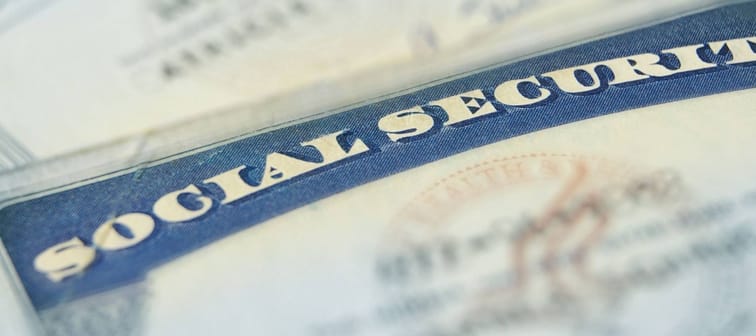The program represents the largest chunk of the federal budget, yet it can seem pretty mundane. But here are some odd facts we bet you don't know about Social Security.
Little known facts about social security
1. Social Security benefits = Mexican economy

The amount paid out by Social Security each year is close to the size of the Mexican economy.
The amount of money doled out by Social Security in a single year is almost equivalent to the size of Mexico’s economy. You don't believe it?
In 2019, the gross domestic product of Mexico is forecast to exceed $1.2 trillion, according to the International Monetary Fund.
Social Security's trustees say about 64 million Americans will collect more than $1 trillion in benefits from the U.S. retirement program this year.
2. Social Security isn't broke (yet)

Social Security isn't broke but is running out of money.
You may have heard that Social Security is broke. Not quite: The program was running a $2.89 trillion surplus in 2018, the trustees report.
However, those reserves are expected to dwindle so that by 2034, benefits will have to be cut by about 25%.
Democrats want to address that by raising Social Security taxes on higher earners. Republicans want to make seniors wait longer to receive higher benefit amounts and face deep cuts if they claim benefits early.
3. Social Security isn’t just for Grandma

Kids can get Social Security, too.
In 2017, 4.2 million children 18 and under got their own Social Security payments as dependents of deceased, disabled or retired workers, the federal Social Security Administration says.
The average monthly benefit? Around $620.
Social Security says the money helps provide for the family so the kids can finish high school.
4. The 20-something who made Social Security history

Clerks sent the first recorded Social Security card to a young man named John David Sweeney Jr. in 1936.
A guy named John David Sweeney Jr. is the first American recorded as having a Social Security card.
He was 23 when he received his card with number 055-09-0001 from the Social Security Administration in 1936.
However, the agency today has no idea who got the very first Social Security card. That would have had the lowest possible number: 001-01-0001.
5. Uncle Sam 'borrows' from Social Security

The government uses Social Security money through the trust fund's investments in Treasury bonds.
Another rumor that makes the rounds is that the government "raids" your Social Security money to pay its bills.
That's a little extreme, though Uncle Sam does borrow from the trust fund, in a way.
Here's how it works: The rules require that Social Security surpluses be invested in Treasury bonds — in other words, government debt used to pay for other things.
6. 'Aunt Ida' got the first regular Social Security check

A retiree known as "Aunt Ida" got less than $25 in the first monthly Social Security check ever issued.
The first monthly Social Security check was for $22.54.
That's the same as about $414 today — still a paltry sum.
Ida May Fuller of Brattleboro, Vermont, called “Aunt Ida” by friends and relatives, received the check in early 1940, several weeks after she retired as a legal secretary.
7. It doesn’t necessarily mean financial security

It's very difficult to live on Social Security.
Social Security won’t make you rich. In fact, don't expect to live off of it, though many people try.
If you had toiled your entire life and scraped by on average earnings, then left the workforce in 2018 at age 65, Social Security would now be replacing just a measly 39% of your previous pay, according to the nonpartisan Center on Budget and Policy Priorities.
To get by, you'll need money from a 401(k) or IRA — and other savings and investments.
8. Social Security numbers aren’t recycled

The Social Security system will eventually run out of number combinations.
When you die, your Social Security number goes to the grave with you. It’s never reused.
Since 1936, the federal government has cranked out more than 453 million of the nine-figure identifiers. Most of us will be in our graves by the time Social Security runs out of numbers and needs to come up with a Plan B.
You'll need a backup plan, too, because Social Security only goes so far in retirement. You might start by opening a savings account.
This 2 minute move could knock $500/year off your car insurance in 2024
OfficialCarInsurance.com lets you compare quotes from trusted brands, such as Progressive, Allstate and GEICO to make sure you're getting the best deal.
You can switch to a more affordable auto insurance option in 2 minutes by providing some information about yourself and your vehicle and choosing from their tailor-made results. Find offers as low as $29 a month.







